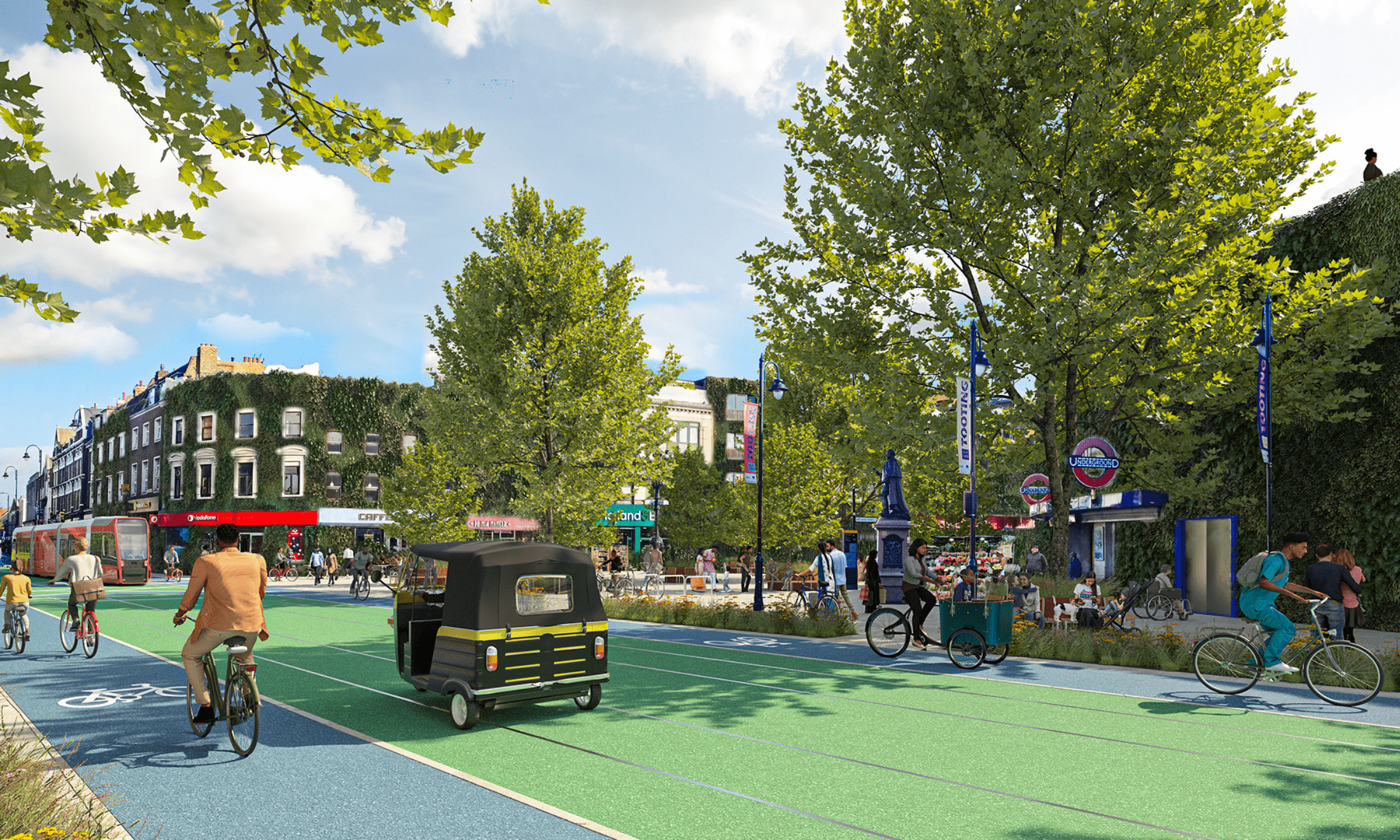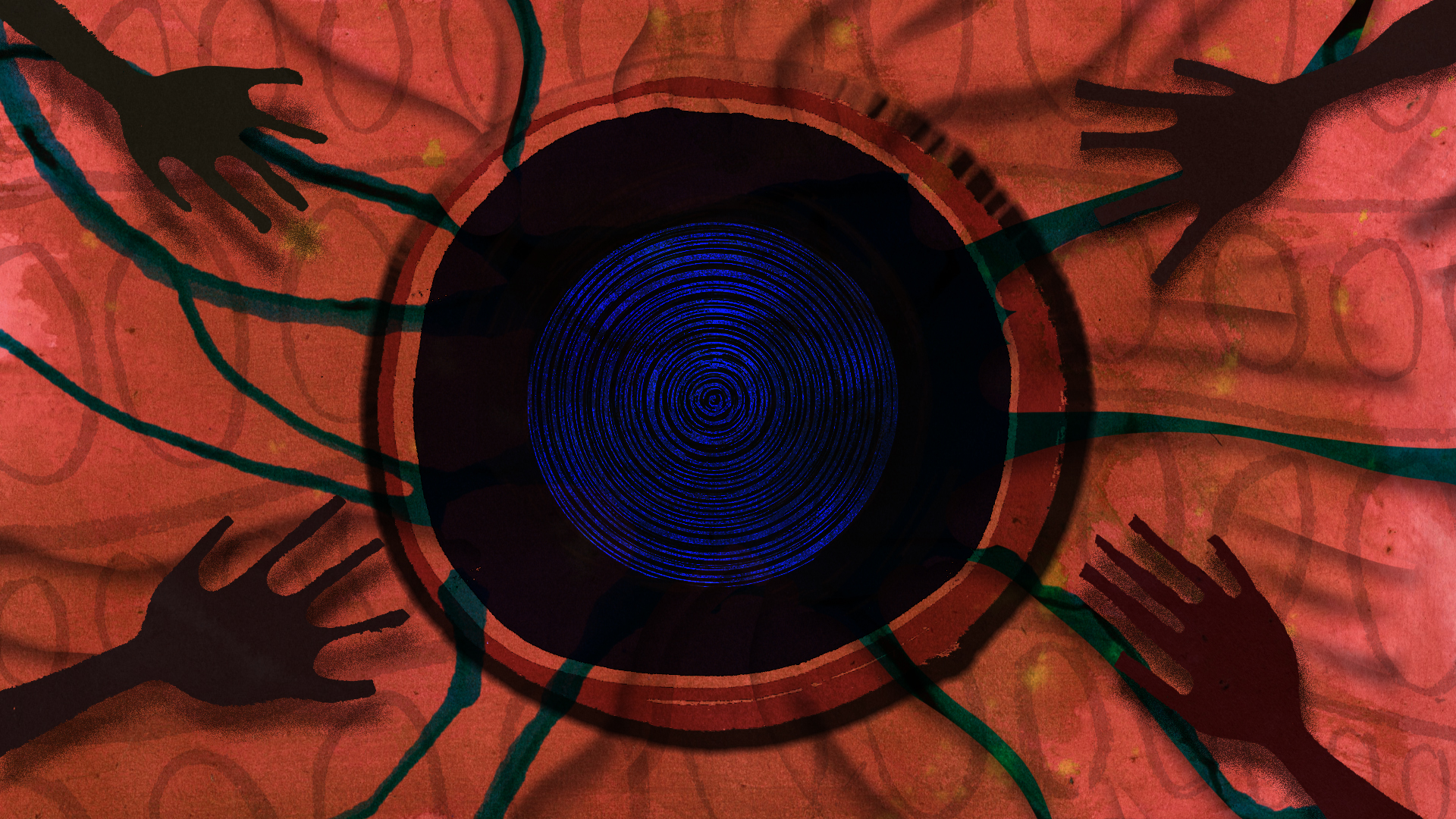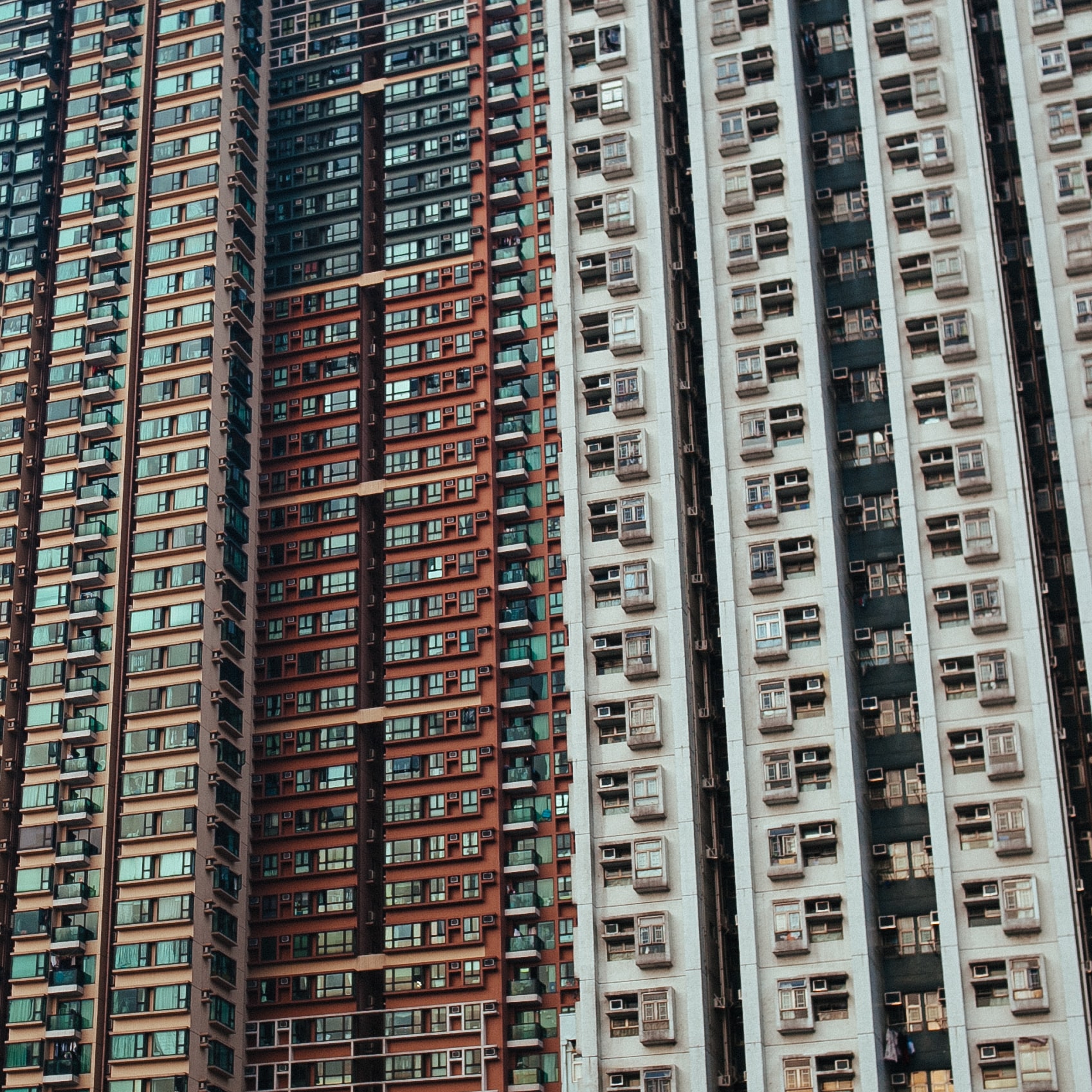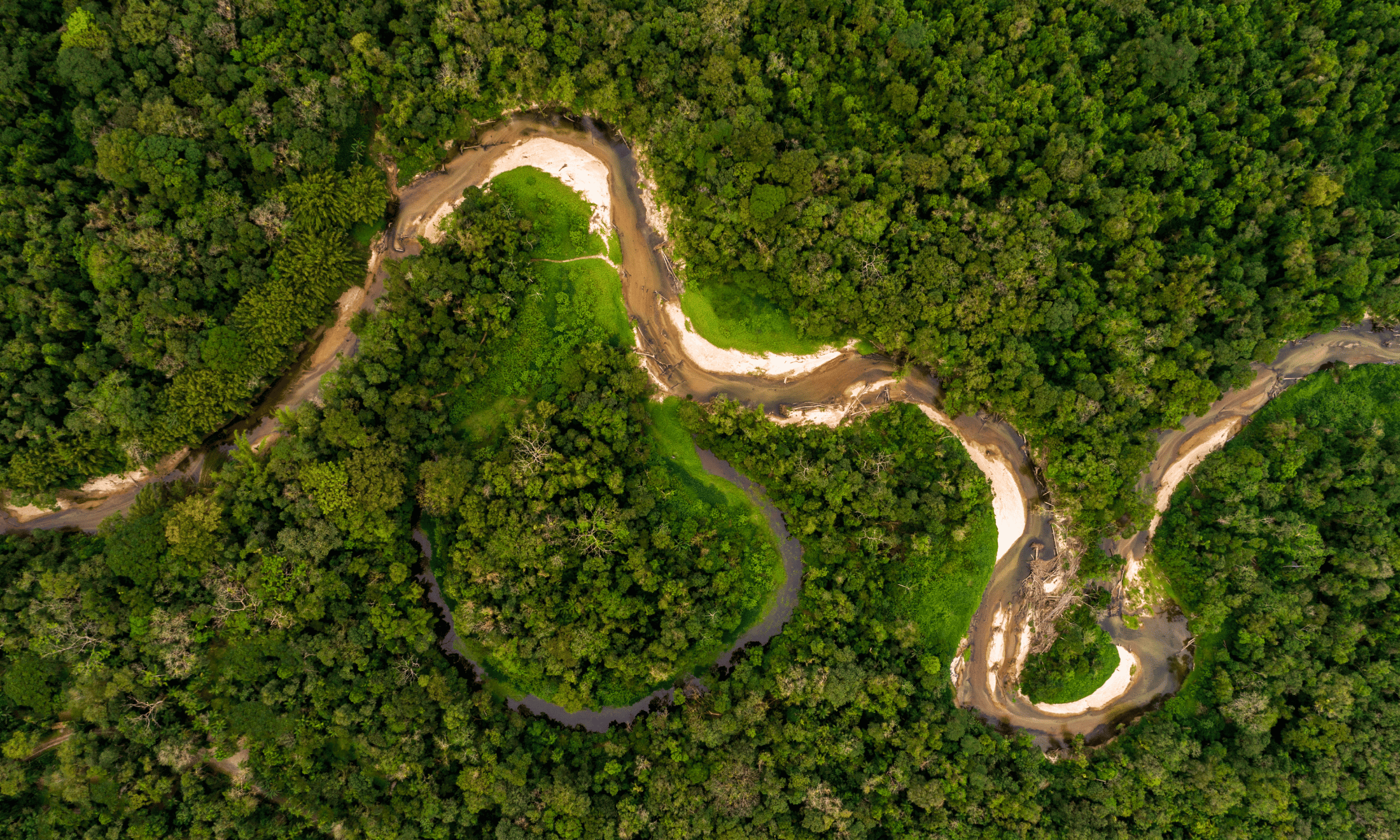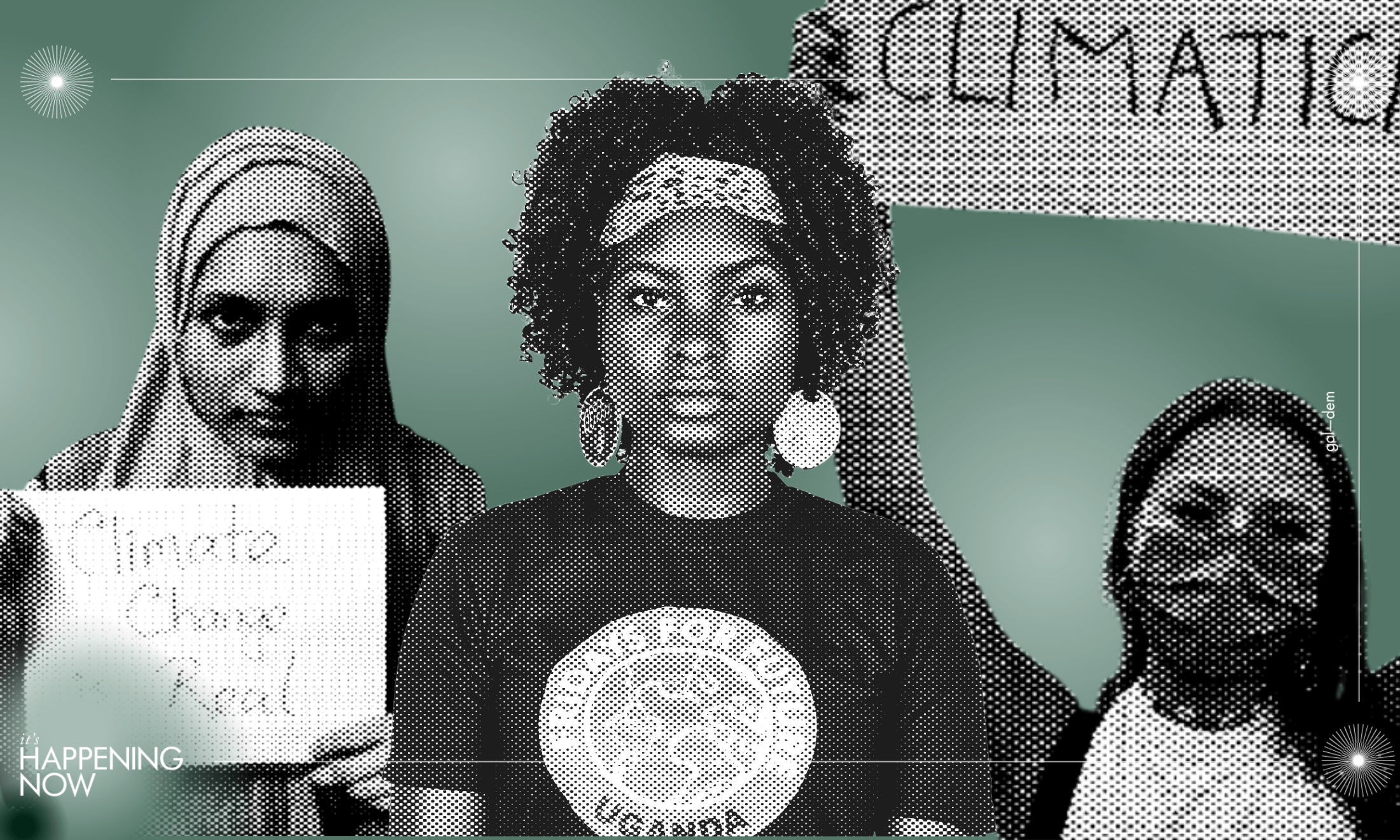
Teen Vogue
Three climate activists from the Global South on their daily realities of living through crisis
From Uganda to Bangladesh, climate change is wrecking communities. Three young activists talk about how climate crisis has impacted them, and why they've decided to fight for change.
Elizabeth Djinis
03 Nov 2021
This story originally appeared in Teen Vogue and is part of Covering Climate Now, a global journalism collaboration strengthening coverage of the climate story.
Droughts, floods, wildfires, food shortages. In low-income countries across the globe, the impacts of the climate emergency are the stuff of daily life. Between 1998 and 2017, global losses from extreme weather events totalled roughly $174 billion annually. People who live in poverty experience the negative impacts of climate change and lose more from those events more often than wealthier people do, according to a United Nations report on poverty, inequality, and climate change. When people who have less lose their property, health, or income, they’re not as well-equipped to bounce back.
“Global losses from extreme weather events totalled roughly $174 billion annually”
But wait — weren’t the world’s wealthier nations supposed to fix that? In 2009, as part of the Paris climate accords, developed countries collectively pledged to commit $100 billion annually by 2020 to “address the needs of developing countries.” Research from the Organisation for Economic Co-operation and Development showed that between 2013 and 2018, the number ranged from $52.2 billion to $78.9 billion. (Oxfam International predicts that wealthy countries will fail to hit the $100 billion marker promised, even by 2025.) The question also comes down to how the money should be spent. Oxfam estimates that only about a quarter will go toward making developing countries more resilient to the effects of climate change.
To mark the United Nations’ 26th Climate Change Conference in Glasgow, Scotland, Teen Vogue speaks with three young climate activists from around the world about the impacts of the climate crisis on their everyday lives and what they hope the future may hold.
Editor’s note: These interviews were condensed and lightly edited for clarity.
Hilda Flavia Nakabuye, 24, Uganda
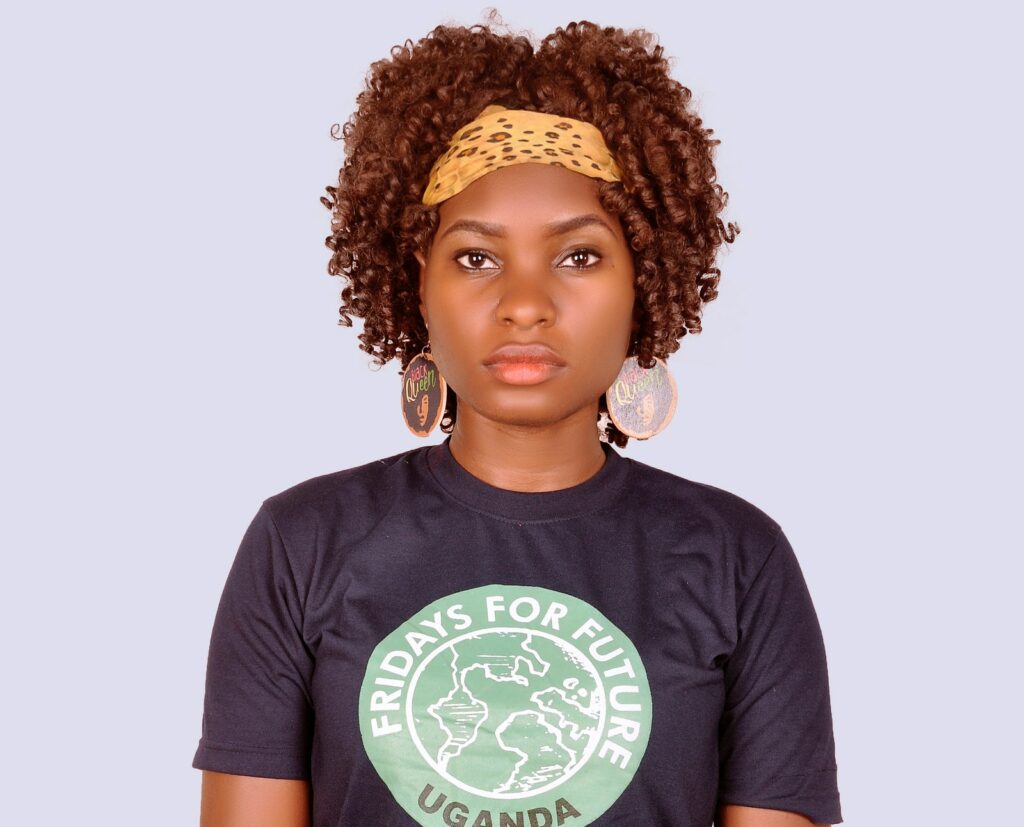
“I grew up in a small village in Uganda called Masaka. In the village, there were strong winds, increasing floods, and increasing temperatures — it was very hard for us to predict the right time to plant or grow crops. My grandmother thought we were being cursed by the gods. I didn’t completely believe it, but I had to just take it until I joined a dialogue and learned about climate change and its effects. I realized that what my family was passing through was not because of the gods but because of climate change.
“When we were young, we had to sell part of the land on our plantation, and we thought we should go to another place to look for better land. But we couldn’t, because we couldn’t afford the money, and due to cultural reasons. Every family in Uganda has burial grounds where the village is, and it’s very hard for people to move from burial sites to look for a new place to live, because that place is attached to them.
“What we are facing mostly are the floods, because in Uganda, every time it rains, it floods. We share Africa’s biggest lake, Lake Victoria, with surrounding countries. Last year, the lake’s water levels were above normal and the water flooded to neighboring communities. About 200,000 people were displaced from their homes. Property was destroyed. We have landslides and mudslides in the east and the west. People have to move long distances to get water.
“That is the ideology most people have — they think that climate change is happening because God has decided it should happen”
“I was talking to my professor at the university to tell him that I would be attending a strike for the climate. His answer was very disappointing. He told me, ‘Climate change does not exist.’ And if it does, he said, I’m just a young girl and I cannot do anything about it. ‘It’s an issue of God,’ he said, ‘and if God doesn’t want it to be there, it won’t be there.’ That is the ideology most people have — they think that climate change is happening because God has decided it should happen, and there’s nothing people can do about it. This is because they do not have prior information about climate change, how it comes and what causes it, and this is the information we try to let them know.
“It wasn’t my dream to be a climate activist. I always thought I would go into acting or be a designer, like my mom. Activism just came along the way. I am doing it because it’s something that is very urgent and necessary and vital to each and every one of us. It’s a global challenge, and we need to come together like global communities to fight it.”
Farzana Faruk Jhumu, 22, Bangladesh
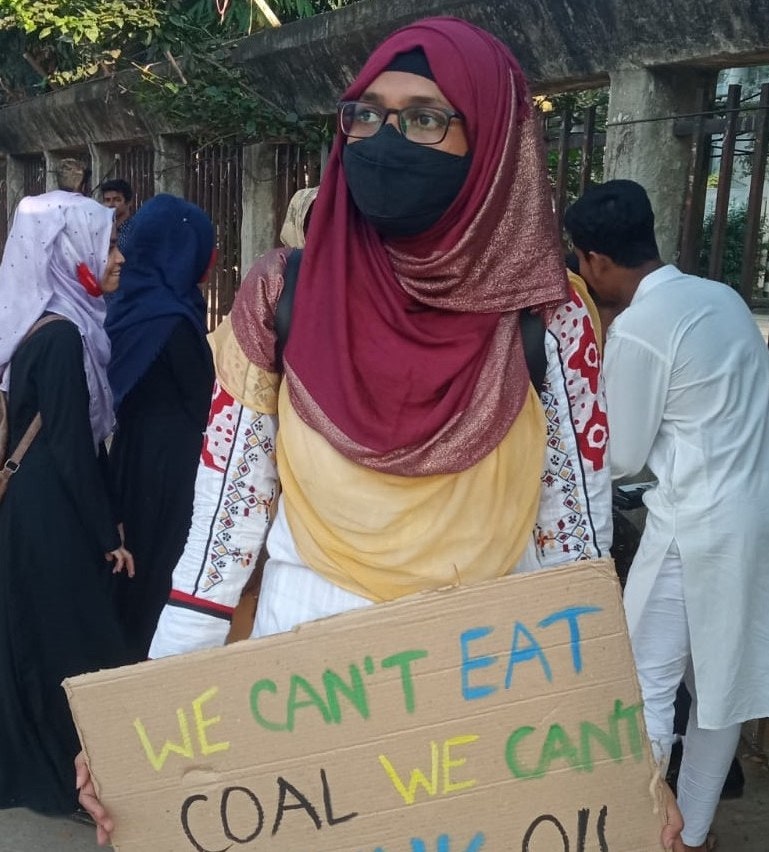
“I live in Dhaka, the capital of Bangladesh, and the most polluted city in the world. We have every kind of pollution you can think of. Maybe one in three people in my family have airborne diseases. There is also a water supply problem — people have to walk two or three hours just to get drinking water in certain places.
“Bangladesh has one of the biggest internal migrations because of the climate crisis. Many people lose their land every day, so they think, Okay, we should move to Dhaka. More than 20 million people are now estimated to live in Dhaka, so it is highly dense.
“Obviously, I am concerned about living in a country with so many climate-related problems. Sometimes, I plan that my life should go [a certain] way, but there is a high risk of Dhaka getting a huge earthquake and getting destroyed. If there is a huge cyclone, it will affect us. Even though a cyclone hasn’t come to Dhaka yet, we’ve had problems like no power or no water for two or three days.
“Even though a cyclone hasn’t come to Dhaka yet, we’ve had problems like no power or no water for two or three days”
“I go through cycles where I’m so positive, thinking, Yes, we can change, and then there are times where I feel like, No, we can’t do it. It’s a part of my life. When I started with climate activism, some people mocked me, saying that the government should take action. Then I realized that there were people who actually denied climate change, and that was so new for me. That was so depressing. How can you deny what I am seeing every day?
“Even this year, we had two cyclones, and after the pandemic, many children couldn’t go to school. There were cases where a whole two-story building just flooded with rains and rivers. And then people say the climate crisis doesn’t exist.”
Nicki Becker, 20, Argentina
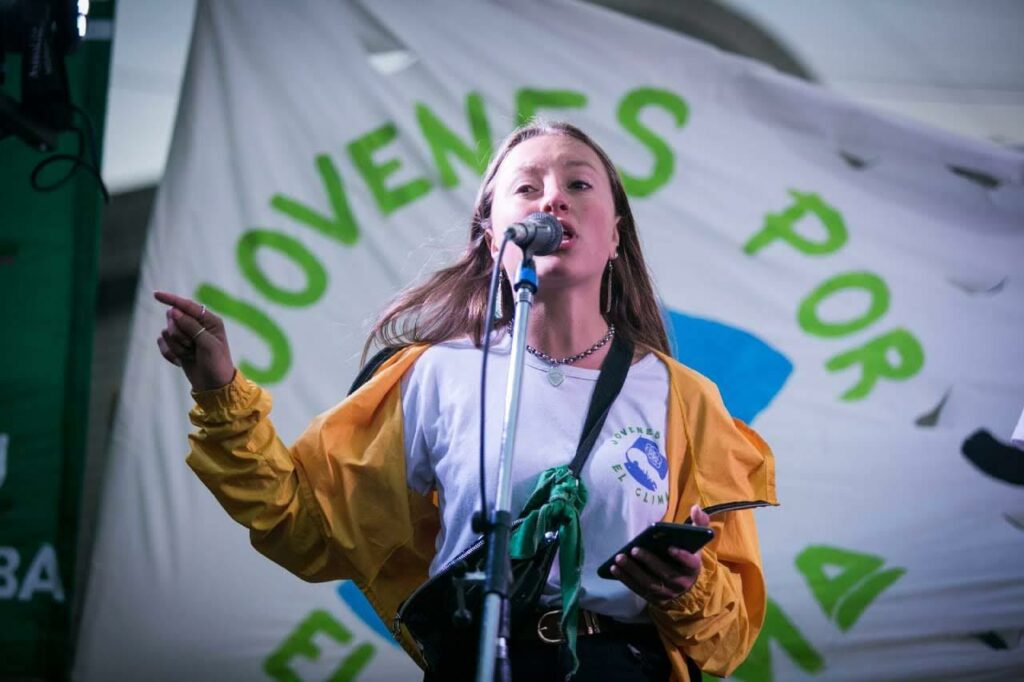
“In February 2019, no one was talking about the climate crisis in Argentina. But I saw a video of young people in Europe calling for a climate strike. I thought, Okay, I will start reading and do some research. I read something that now seems very basic for me, but at that moment, it changed my perspective of the issue. I read that the climate crisis is a human rights issue.
“In a way, I didn’t decide to be a climate activist — I didn’t have a choice. I started Jóvenes Por El Clima Argentina with some friends here. We called for the first international strike, and about 5,000 people came. We didn’t expect that. It was the landmark of all of the things that we achieved later. It was an election year, so politicians started to see that a lot of people went to this strike.
“I didn’t decide to be a climate activist — I didn’t have a choice”
“Last year, we had more than one million hectares of forest land burned because of the climate crisis. And, of course, the air we breathe is polluted because of that. The big achievements that we had here in Argentina [were] to put the issue on the political agenda, the social agenda, and on the media agenda. It’s not that politicians want to talk about the climate crisis, but it’s the people who demand that. Sometimes these words do not translate into action. But people understand that the climate crisis is a big issue. Sometimes they think it’s such a big problem that they can’t do anything. I understand that. Sometimes it’s overwhelming to think that this is not just a systemic problem of Argentina, it’s a global systemic problem. What can I do?
“I am vegan, and I always use my bike to go everywhere. I don’t use plastic. There are a lot of things that I do now that are normal to me because they are a part of my habits. I always used to think that if you are only doing this in the little things, then you get comfortable in doing that and forget that there is a big problem. But if you only talk about doing something about the big problems and the structure and systemic change, sometimes people get comfortable and don’t ask themselves about their daily life.”
For too long, both climate activism and climate coverage have overlooked the voices and experiences of communities of colour. Follow our new series, It’s Happening Now, for stories that look to change that.


